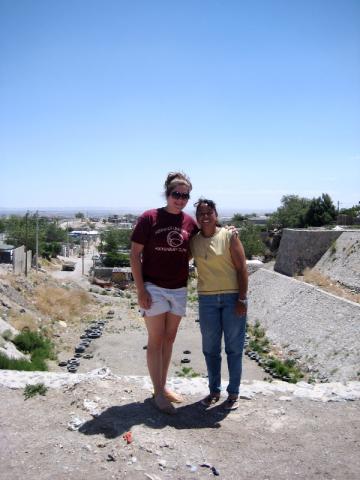Phylicia Martel
B.A. Alumna
Biography
TeachNOLA, Lake Area New Tech Early College High School, Spanish Department
After graduating from Tulane, Phylicia entered the TeachNOLA Teaching Fellows Program, an alternative pathway into the teaching profession. Her journey with the program began with a highly intensive, 5-week Summer Training Institute. Upon completion of the Summer Training Institute, she was hired to work as a Spanish Teacher at Lake Area New Tech Early College High School, a school of over 600 students in the Gentilly Neighborhood of New Orleans. In her first year, it was her responsibility to teach Spanish I and II to nearly 200 students in grades 9-12, as well as instruct a Senior Seminar course, with the goal of preparing graduating seniors for their transitions to college. Additionally, she was the Head Women‘s Basketball Coach for the Lady Leopards, and also sponsored the school‘s first-ever Sociedad Honoraria Hispánica (Spanish Honor Society).
Phylicia reflects on her time at Tulane…
Why did you choose to major in Latin American Studies?
I chose to major in Latin American Studies for a number of reasons. First and foremost, I had a truly wonderful high school Spanish teacher, Len Lavin, who instilled in me a passion for the Spanish language and Hispanic culture. Furthermore, as a freshman with an undeclared major, I had the opportunity to participate in a Border Awareness Experience, which brought me to the U.S.-Mexican border region in May 2008. The program highlighted issues in the region, by placing students with host families in Juárez, México and Anthony, New Mexico, in addition to hosting meetings with local grassroots organizations. My experiences during this course ultimately sealed the deal for me. The following year I chose to study for an academic year in Spain. While there, I was able to travel extensively; it was an opportunity that allowed me to briefly conduct research on Galician emigration patterns to Latin America. After my year abroad I decided to transfer to Tulane, as a junior, and delve more deeply into the Latin American Studies major. Ultimately, being a Latin American Studies major at Tulane was ideal. It emphasized an interdisciplinary approach, research-based learning, and career preparedness through a wide array of cross-curricular course options, exceptional advisors and professors, and a truly challenging, yet rewarding Senior Capstone course.
How has your background in LAST helped you since graduation?
My background in Latin American Studies has helped me immensely since graduation. As I prepare lesson plans each week, I always reflect on what I learned, and what I enjoyed during my time as a Latin American Studies major. Those experiences carry over into my classroom, influencing many of my instructional choices. Not many people realize that the job of a Spanish teacher isn‘t limited to simply teaching grammatical aspects of a language. It also includes teaching cultural concepts. We spent an entire quarter, for example, sampling a variety of perspectives and information on immigration to the United States, specifically from Latin America. My students learned how to express their thoughts on how immigration affects our country and our Greater New Orleans community more specirfically. We also watched the movie Voces inocentes, a film based on a true story of a boy witnessing the horrors of the Salvadoran Civil War. My students engaged with this film on multiple levels. We were able to sustain a conversation about a variety of pertinent topics‘“war-torn Latin American countries, child soldiers, poverty, violence, and the United States‘ influence in the region. I have many examples of times when my Latin American Studies degree was highly relevant.
The Latin American Studies major helps you to explore how to pursue a career related to the major. The department‘s professors and advisors provided me with countless tools, they even taught me how to tailor a resumé and cover letter specifically for a job in the field. These seemingly small things are what set the program and its staff apart from any other, and I owe them a great deal for helping me reach where I am today.
In hindsight, what would you have done differently as a LAST major?
Absolutely nothing. No regrets here.
Any words of wisdom for LAST undergraduates?
Study abroad at least once. Utilize the department resources and staff, which are second to none. Push yourself and take challenging and intriguing courses. Get involved with the local community, whether you work with the Hispanic Apostolate teaching ESL or volunteer in a Spanish classroom (like mine)‘“find out where your interests lie and pursue them vigorously.

